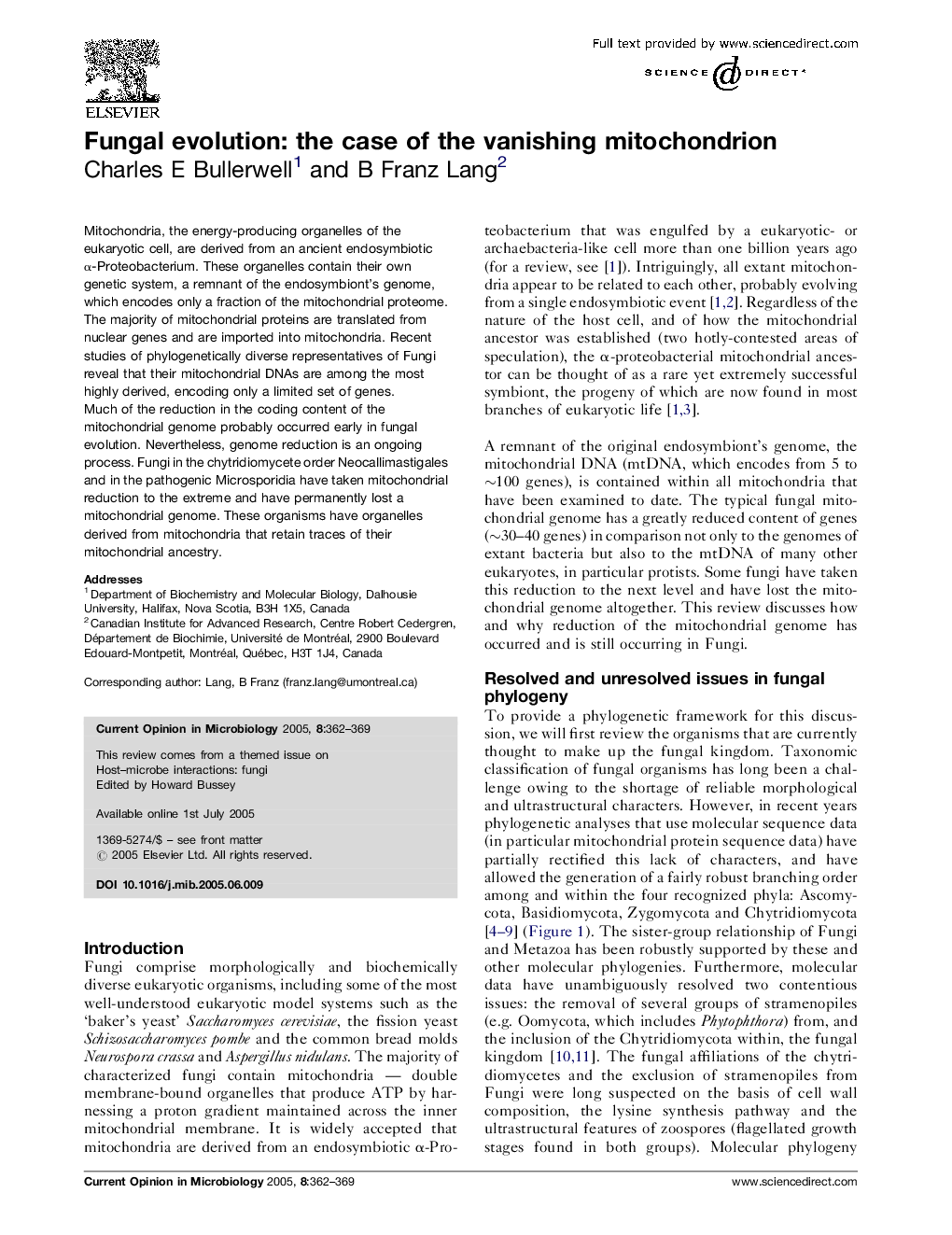| Article ID | Journal | Published Year | Pages | File Type |
|---|---|---|---|---|
| 9276650 | Current Opinion in Microbiology | 2005 | 8 Pages |
Abstract
Mitochondria, the energy-producing organelles of the eukaryotic cell, are derived from an ancient endosymbiotic α-Proteobacterium. These organelles contain their own genetic system, a remnant of the endosymbiont's genome, which encodes only a fraction of the mitochondrial proteome. The majority of mitochondrial proteins are translated from nuclear genes and are imported into mitochondria. Recent studies of phylogenetically diverse representatives of Fungi reveal that their mitochondrial DNAs are among the most highly derived, encoding only a limited set of genes. Much of the reduction in the coding content of the mitochondrial genome probably occurred early in fungal evolution. Nevertheless, genome reduction is an ongoing process. Fungi in the chytridiomycete order Neocallimastigales and in the pathogenic Microsporidia have taken mitochondrial reduction to the extreme and have permanently lost a mitochondrial genome. These organisms have organelles derived from mitochondria that retain traces of their mitochondrial ancestry.
Related Topics
Life Sciences
Immunology and Microbiology
Microbiology
Authors
Charles E Bullerwell, B Franz Lang,
